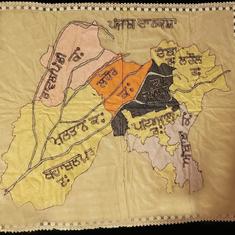Chetan Bhagat is nothing if not a crusader. As he’s made amply clear, one of the issues he cares deeply about is that of women’s rights.
If his books don’t make this obvious, you could look at his tweets. Or his wonderfully patronising Women’s Day exhortation, titled “Five things women need to change about themselves”.
Now he has gone a step further, and put his money where his mouth is: he has written a book from a female perspective. As he has been threatening to for some time now, he has released the book’s title – One Indian Girl – along with a teaser and an excerpt.
For the short, merciful version of what the book is about, the teaser – set to a catchy soundtrack, with graphics and text – is sufficient. The text is in the voice of the protagonist, Radhika Mehta, who is on the verge of getting married. “I work in a top investment bank,” says Radhika, by way of introduction. “Thank you for reading my crazy story,” she continues, rather prematurely.
“However, let me warn you, you may not like me too much,” the text continues. Here is where Bhagat’s agenda becomes painfully evident. “One, I make a lot of money. Two, I have an opinion on everything. Three, I have had sex before. Now, if I were a guy, you’d be cool with all this. Since I am a girl, these things don’t really make me too likeable, do they?”
Don’t get us wrong – we more than agree that women and men are held to different standards in society, but given Bhagat’s track record, we don’t see how he can tackle this hypocrisy in any way that can be considered nuanced or sensitive.
In case anyone wants a deeper dive, Bhagat has made available the prologue and first chapter of the book. In it, we encounter Radhika fretting on the night before her wedding – “…the first destination wedding in the Mehta family” – and then negotiating with the lobby manager and then her family at the fancy hotel where she is expecting her future husband and his wedding party to arrive in a few hours.
You can kind of already see how the book might be made into another Bollywood film. Radhika’s mother is aggressive, her father is passive, and several of her relatives are said to be jealous that the family has reached the “level” of being able to do a destination wedding in Goa – familiar territory for our film industry.
The chapter ends with Radhika having to compromise on the number of rooms her own family will occupy in the fancy hotel, so that the stranger she is about to marry and his family will have a lion’s share of the rooms. The story so far is insipid and the writing style is easy – pure, unadulterated Chetan Bhagat.
Where things get interesting is the rather passive-aggressive Q&A. In Bhagat’s words, the book is about feminism: “Feminism is equal rights. There’s nothing too fancy about it. It gets a little complicated because men and women want different things out of life. Their core drives and motivations are different. Men controlled and designed the world earlier so clearly they didn’t keep women in mind as much.”
Now, if Bhagat had bothered to do the slightest bit of research into his purported subject, he would likely not feel too comfortable proclaiming that “men and women want different things” because their “core drives and motivations” are supposedly disparate. At best, this is a highly debatable point. And he wouldn’t reduce centuries of systemic discrimination and patriarchy into such a laughably simplistic idea.
Bhagat wants to get away with not having done his reading by saying that this is his “take” on the issue of women’s rights, and should not be considered an expert opinion. But in a world that is so rife with gender-based violence and discrimination, where women and gender minorities, including transgender and gender-fluid people, have to deal with the intersection of sexism with a number of other issues, this simplistic take just doesn’t cut it.
Bhagat understands and seems to anticipate that he will be questioned by those who are deeply interested in and invested in the subject of gender. In the Q&A, he says: “… let’s not get lost in the personal attacks so much that we lose sight of the big picture – this book, and the attendant publicity that will come with it, is a great chance to highlight the feminist cause. If you really care about feminism, that is a good thing right?”
By characterising all critique as “personal attack” and attempting to frame disagreements as taking away from “the feminist cause”, Bhagat betrays his lack of understanding of what the practice of feminism can be at its best: a conversation that allows room for debate, discussion, and disagreement. He is in fact indulging in the very thing that he seems to deride: appropriation. Moreover, he is implying that we should be so grateful that a best-selling author of his stature is giving “publicity” to the cause that we should go along with whatever shape he twists it into.
Bhagat understands the influence he has as a writer, and seems to feel a sense of responsibility about his role in public conversations. It’s a pity that he chooses to ignore his own limitations and explain them away rather than deal with them in any thoughtful manner.











